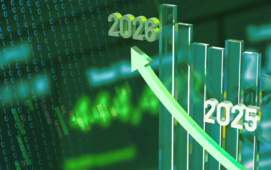Milan based consultancy Iason has added equity derivatives to the Global Trade Repository Analytics (GTRA) datafeed that it developed in collaboration with, and is marketed exclusively by, Financial Machineries UK.
Commenting on the addition of equity derivatives to the consolidated data feed, Iason CEO Antonio Castagna says: “The equity derivatives data completes the set of OTC traded prices published by SDRs and available through GTRA. It constitutes a rich amount of data, encompassing stock options, forwards and dividend swaps. The data aids banks to assess the activity across the breadth and depth of the equity derivatives market.”
Suzanne Lock, data sales manager at Financial Machineries, adds: “Feedback from our clients and the wider market demonstrates the demand for a single, consolidated feed that has not before been available.”
For consumers, it is a complex and time-consuming process to access and collate data from each SDR. To gain a full picture of a trade, consumers must match up the corresponding sides of each trade, which may be contained in two distinct SDRs and use different taxonomies. After the trades have been matched, the data needs to be cleansed and normalised, which GTRA does within a minute of the trade being reported.
The GTRA datafeed and analytics desktop allow market participants to monitor actual trading activity, from instrument overview to the contract level. As this is actual, transacted data instead of indicative pricing, consumers can use GTRA to drill down to identify liquidity pockets, or holes, across a full range of derivative contracts.
Since the beginning of the Dodd-Frank Act, Iason and Financial Machineries have been collecting, aggregating and normalising trade history data from all four Swap Data Repositories (SDRs) operating in the US, namely Bloomberg, the Chicago Mercantile Exchange (CME), Intercontinental Exchange (ICE) and the Depository Trust and Clearing Corporation (DTCC).
Both Dodd-Frank and European Market Infrastructure Regulation (EMIR) rules require certain credit, interest rates, commodities and FX derivatives trades must be reported to an SDR within a set timeframe after execution, and that this data must be made publicly available. As well as supporting these regulations, aggregated, cleansed and normalised transacted data from the four SDRs will provide verified prices for Fundamental Review of the Trading Book Regulation (FRTB).
Subscribe to our newsletter




